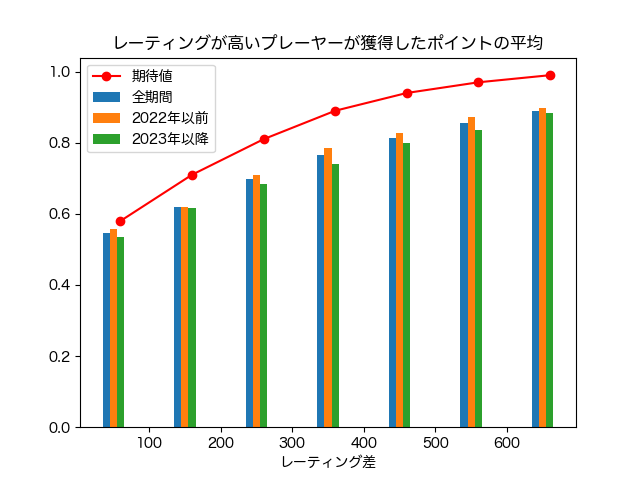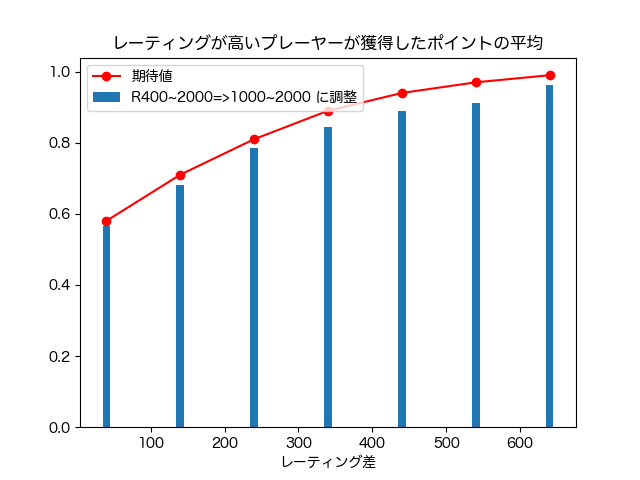As of October 1, we will be implementing a significant revision of the Japan Chess Federation’s rating regulations and a comprehensive adjustment of national ratings. The issue of “underrating,” where national ratings are calculated lower than a player’s actual ability, has become increasingly severe. Addressing this issue is the main goal of this revision and adjustment. Additionally, this change will address the growing gap between national ratings and FIDE ratings.
The revised regulations have been reorganized for readability, with various adjustments large and small. Below is a summary of the key changes.
(Updated on October 1: The rating regulations have been revised.)
Key Change 1: Method of Determining Initial Ratings
One major cause of the underrating issue is the method used to determine initial ratings. We will be making the following changes to the process:
– The number of total games required to determine an initial rating will be raised from “4” to “6.”
– Games played against unrated opponents (UR) will no longer be treated as if played against a rating of 1000, and only games against rated opponents will be used to calculate the initial rating.
– The FIDE Initial Rating Calculator will be replaced with performance ratings to calculate initial ratings.
These changes aim to ensure that the initial ratings of players earning ratings for the first time will be more accurate and closer to their actual ability, thereby addressing the underrating issue.
Key Change 2: Rating Scale Adjustment and National Rating Adjustment

Figure 1: Average points earned by players with higher ratings (Japanese)
As shown in Figure 1, there was a discrepancy between the theoretical expected values given by the rating system (red dotted line) and the actual average points (colored graphs) earned in national rated games. Therefore, we will raise the lower limit of national ratings from 400 to 1000 and narrow the rating scale. In line with this, a comprehensive adjustment will be made to the ratings of players with national ratings between 400 and 2000, according to the following formula (rounded to the nearest decimal):
Rn = Ro + (2000-Ro)*(3/8)
- Rn: Adjusted rating
- Ro: Pre-adjustment rating
This adjustment will be applied to the ratings published on October 1, and the post-adjustment rating list will be published as the October 2024 national ratings.

Figure 2: Simulation of average points earned after comprehensive adjustment (Japanese)
By raising the lower limit and making the comprehensive adjustment, we will align the expected value calculated from the rating difference (red dotted line) with the average actual points earned (blue graph). Additionally, this will help address the issue of the growing gap between national and FIDE ratings. While national and FIDE ratings are separate systems, and it is not necessary for them to match exactly, we will strive to reduce the gap, as FIDE ratings are referenced when players with only FIDE ratings compete in national rated games.
*FIDE rating lower limit: 1400
Key Change 3: Changes to the Period of K=40
Even after earning an initial rating close to their actual ability, it is common for new players and youth players to rapidly improve their skills. Therefore, we will modify the period during which the rating coefficient (K), which determines the rating fluctuation, is 40 instead of the usual 20, as follows:
– Extend the threshold for total games played from “less than 18” to “less than 30.”
– Change the criteria from “under 18 years old and a rating below 2300” to “under 19 years old and has never had a rating of 2000 or higher.”
This change will help ensure that rating increases keep pace with actual skill improvement.
Other Important Changes
Although not directly related to ratings themselves, the following changes will also be made under the revised regulations. First, while previously only the federation or registered clubs were allowed to host rated games, student chess federation-affiliated clubs will now be permitted to host rated games.
On the other hand, to prevent fraud such as intentionally not reporting results of certain rated games, as well as reporting omissions by clubs or calculation errors by the federation, the following rules will be explicitly stated:
– Applications to host rated games must be submitted to the federation at least five days before the event.
– Organizers must report all games from hosted rated games to the federation.
– If a tournament is deemed to be unfairly managed or otherwise inappropriate as an rated game, it may not be included in the rating calculation.
*The method for submitting event applications will be communicated separately to the club leaders and circle leaders.
We hope that these changes will lead to national ratings more accurately reflecting players’ abilities, enhancing players’ motivation. Additionally, we hope that rated games will become more active in a fair manner.
For all changes, including the above-mentioned points, please refer to the comparison table below.
 日本語
日本語 English
English